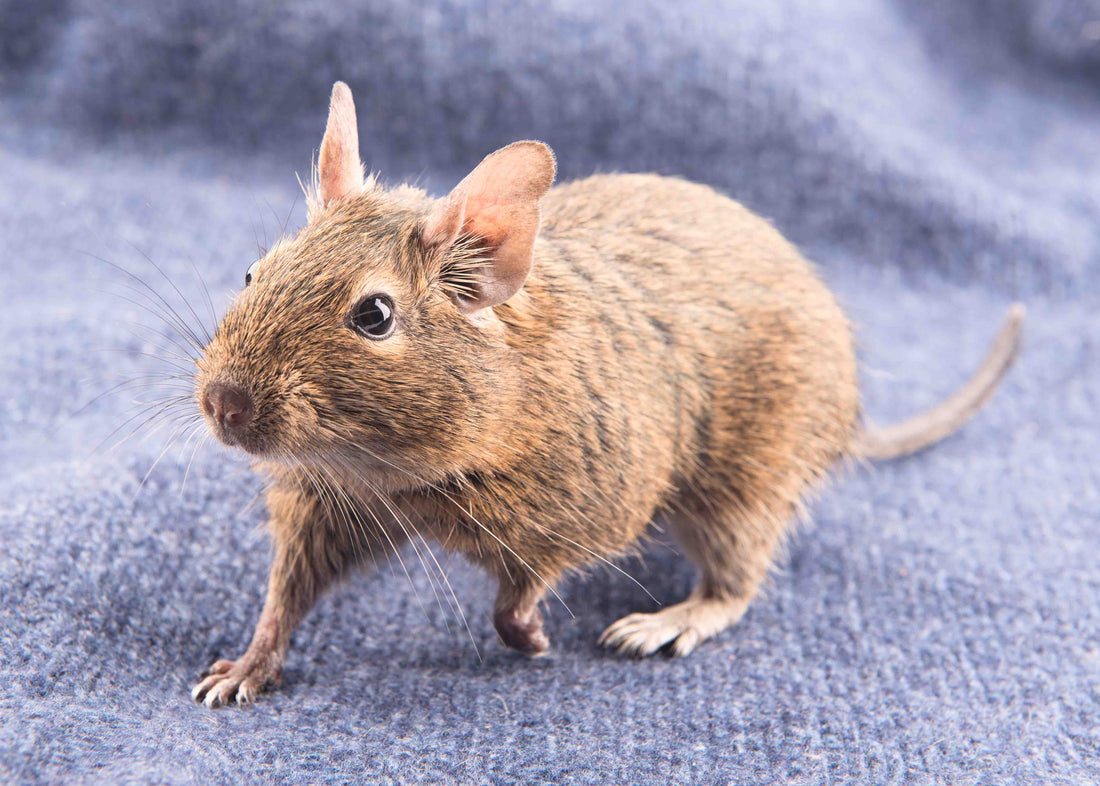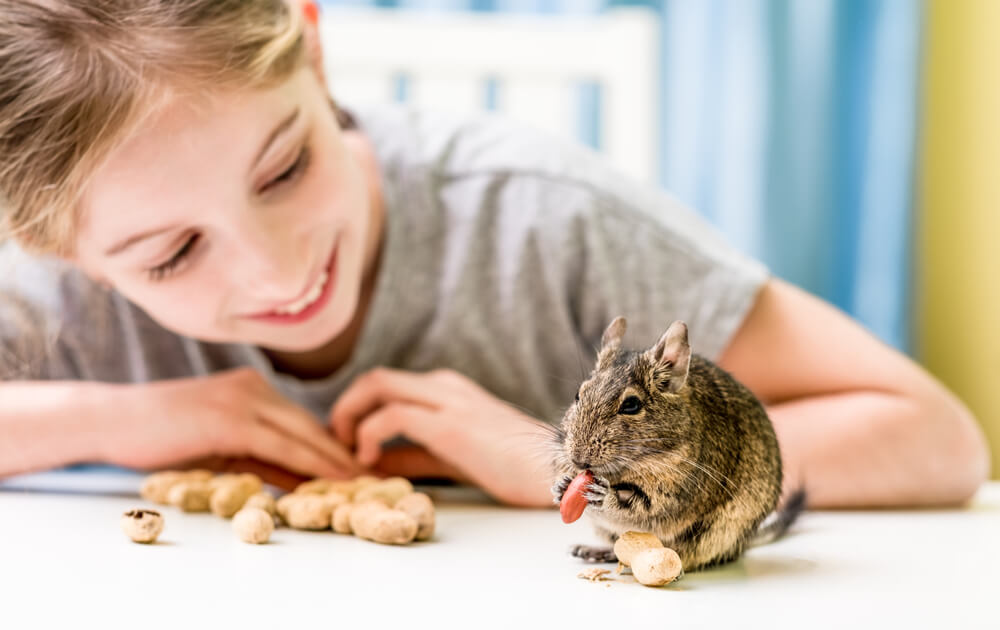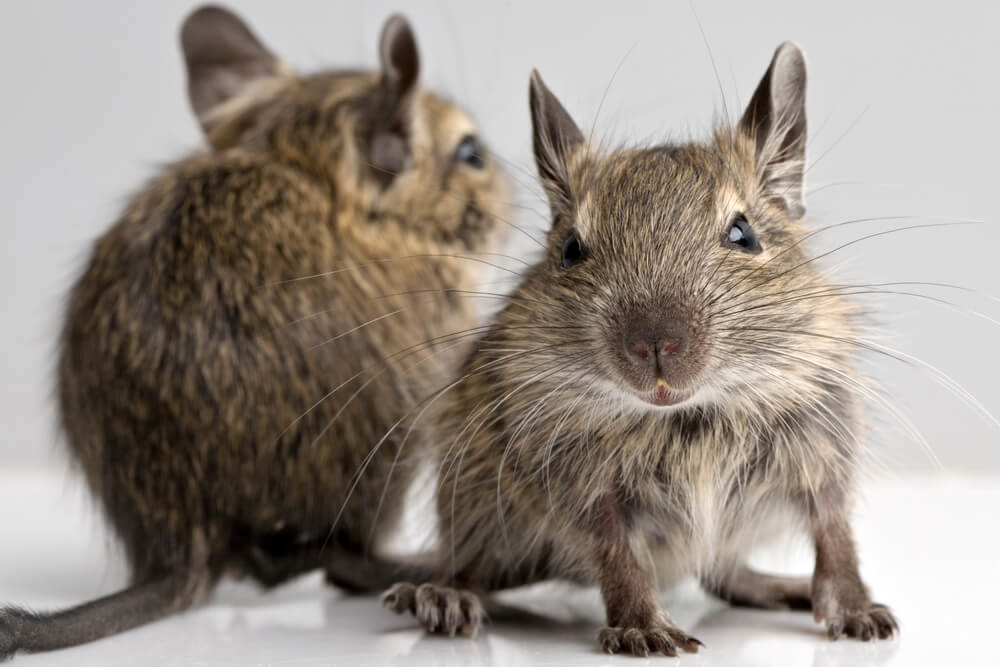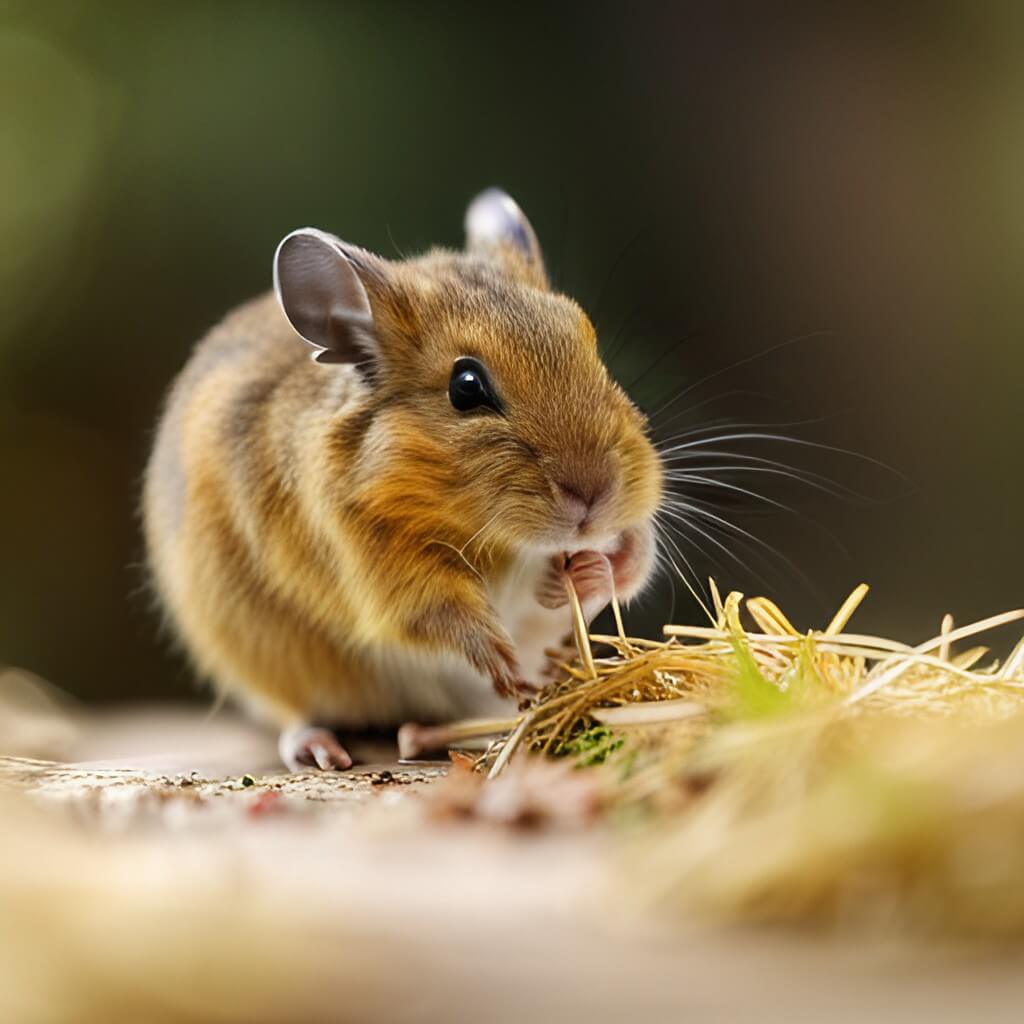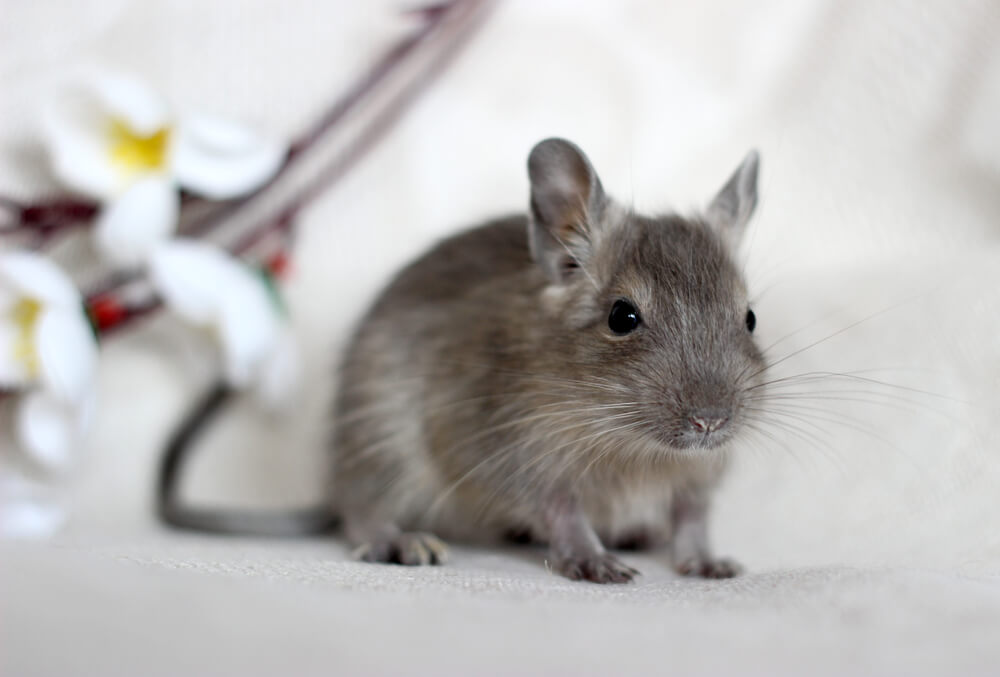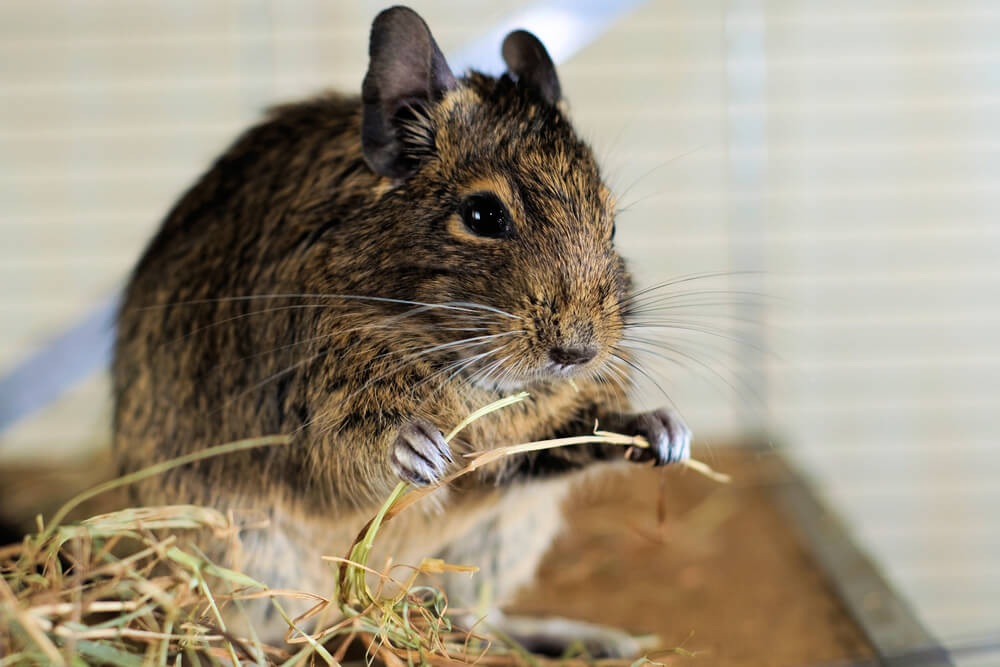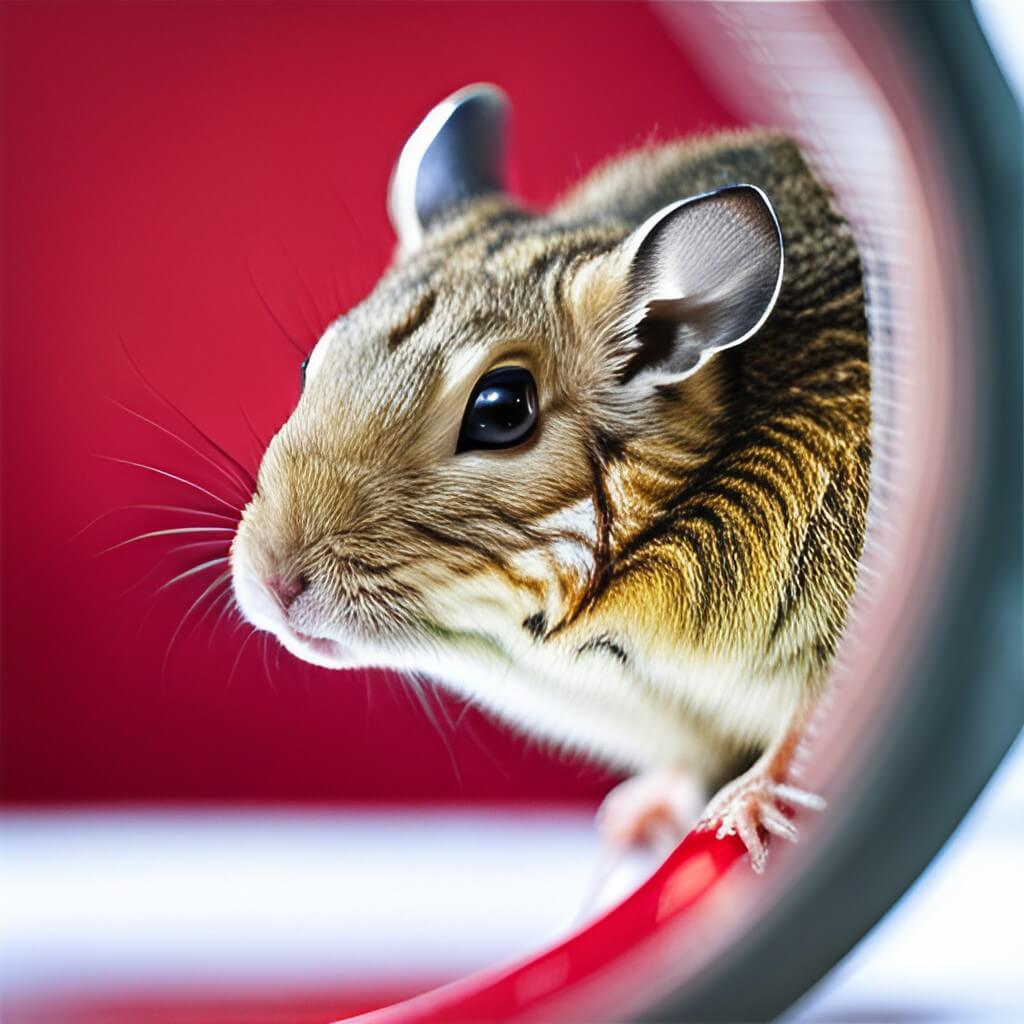In this article
- The benefits of Including hay in your degus' diet
- How much hay should degus have to eat?
- What fruits and vegetables can degus eat? And how often?
- What about the degu-specific pellets on the market?
- How much water should my degu get?
- What are some common health problems in degus that can be caused by poor diet?
- 7 facts about degu food
When it comes to food for degus, they are used to a diet of mostly seeds, fruits, and vegetables. In the wild, degus will forage for food and eat whatever is available. However, when keeping degus as pets, it's important to give them a diet that closely resembles their natural diet in order to keep them healthy and happy.
The Benefits of Including Hay in Your Degus' Diet
Degus are a fun and unique species of rodent, but don't be fooled into thinking they can get away with bad diet choices! Hay is the single most important part of their diet, and it should be good quality meadow or Timothy hay. Not only will it provide them with the minimum 18% dietary fiber recommended for degus. Hay is an important source of fiber for degus and helps keep their digestive system healthy. Degus should have access to hay at all times and it should be replaced regularly.
It also supports natural gnawing behavior, which helps prevent overgrown teeth from becoming a problem. As rodents tend to have continuously growing teeth, it’s important to provide them with hay to chew on regularly for healthy teeth as well as overall well being.
For those not familiar with hay, Timothy Hay is a particularly popular variety for degus. It’s brown in color (green hay can cause bloating!) and has a fresh sweet smell. If your hay smells musty or appears pink or white in places, it’s time to toss it out and get some new hay. To make the hay more palatable, you can mix a small amount of alfalfa hay with it. But be careful – too much alfalfa hay can have negative effects on your degu’s kidneys. As tempting as those alfalfa pellets look, they don’t pose the same risk as having too much alfalfa hay in their diet.
How much hay should degus have to eat?
The amount of hay degus need to eat will vary depending on their age, size, and activity level. As a general rule of thumb, degus should have a small handful of hay to eat each day. If you are unsure how much hay your degu needs to eat, please consult with your veterinarian.
How often should degus have fresh fruit and vegetables?
It's time to get out the veggie platter for your degus! But don't go crazy: too much fresh greens and herbs, such as lettuce, cabbage and peas can cause bloating - so stick to a few thumbnail sized bits of veg once or twice per week. And with fruit, play it safe - unless your degu is diabetic, make sure to only give small amounts once a month. Unless of course you want your degus bouncing off the walls - in which case, go ahead and let them indulge! After all, who doesn't love a bit of indulgence every now and then? Happy feeding!
A reminder: too much of a good thing can be bad, so make sure to stick to these guidelines for happy and healthy degus!
What fruits and vegetables can degus eat?
Degus can eat most vegetables. Here's a list of tasty veggies for them. The vegetables that have an asterix * are ones that shouldn't be overfeed so as to avoid bloating and gas (yikes!).
- Asparagus*
- Basil (fresh)
- Beets
- Broccoli*
- Brussels sprouts*
- Cabbage*
- Cauliflower*
- Celery *
- Dandelion leaves*
- Fresh grass*
- Fresh herbs (oregano; mint; parsley; basil; chives; comfrey; lemon balm; coriander)
- Green beans*
- Kale*
- Lettuce*
- Mint (fresh)
- Parsley (fresh)
- Peppers
- Radish*
- Rutabaga (aka Swede)*
These vegetables are higher in natural sugars. Don't feed these more than once a month and only sparingly Do not feed at all to diabetic degus.
- Carrots
- Cherry
- Corn
- Peas
- Sweet Potato
- Tomato
Since degus are prone to diabetes, they should be fed little to no fruit. Fruit is typically high in sugar and eating fruit can cause their blood glucose to spike dramatically.
What about the degu-specific pellets on the market?
Degus love their pellets like most of us love our snacks!
The key to choosing degu-specific pellets is to read the label carefully, making sure to avoid any that contain added sugars or artificial ingredients - after all, we don't want to give our furry friend to a sugar rush when we're just trying to get them their daily nutrition.
A small handful of degu-specific pellets each day will ensure your little buddy gets all the nutrients they need, and you can rest assured knowing that the snacks you're giving them are top notch!
You should not feed your degus rabbit food or pellets, as it may contain an ingredient they will find harmful - danger!
Along with degu food needs, how much water should my degu get?
Degus need to drink water every day to stay hydrated. Let them have as much water as they need. The best way to give degus water is to use a water bottle with a small nozzle. This will allow degus to drink without getting their fur wet.
You can find degu-specific water bottles at most pet stores or online.
What are some common health problems in degus that can be caused by poor diet?
Some common health problems in degus that can be caused by poor diet include obesity, diabetes, and gastrointestinal problems. By following the guidelines above and providing your degu with a well-rounded diet, you can help prevent these health problems.
7 facts about degu food
- A degu's diet should consist of degu-specific pellets, fresh hay, fresh fruit or vegetables, and water.
- Pellets are a balanced source of nutrition for degus and help ensure they get all the nutrients they need.
- Hay is an important source of fiber for degus and helps keep their digestive system healthy.
- Fresh fruit and vegetables provide degus with essential vitamins and minerals.
- Water is essential for degus to stay hydrated.
- The amount of food degus need to eat will vary depending on their age, size, and activity level.
- degus also need a source of calcium and vitamin D3, which can be found in most commercial degu foods
By following the guidelines in this article, you can be sure your degu is getting the nutrients they need to stay healthy and happy!
Providing a well-rounded diet that includes degu-specific pellets, hay, fresh fruit or vegetables, and water will help your degu live a long and healthy life.

